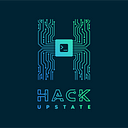8 Tips to a Successful Hackathon Demo and Presentation
Sign up for Hack Upstate XI today — April 14th & 15th — Build. Break. Collaborate.
The following guest post is from Mark Headd, former Chief Data Officer for the City of Philadelphia and Director of Government Relations at Code for America. He currently works as an Innovation Specialist at 18F. Interested in writing a guest post? team@hackupstate.com
The purpose of an app challenge demo or presentation is to succinctly present your work on a civic app or solution to a panel of judges. It is usually the culmination of days (or even weeks) of work, and may only be limited to a few minutes.
Here are a set of suggestions that can help make these few minutes in front of a judging panel as effective and impactful as possible.
Get ready
Prepare your presentation ahead of time — while judges may understand the desire to work on a project right up to the last minute, making sure your presentation is solid and tells a compelling story is as important as your project itself. Take the time to prepare slides or a similar visual presentation that can accompany your remarks to the judges.
Know the problem
Clearly state what your project is and the problem that you believe it helps solve. If you can do so in the time allotted for the challenge, talk to people that are affected by this problem to more fully understand how your solution may help them. Judges will typically be impressed by more fully featured and sophisticated solutions, but ensuring that your app is focused on solving a real problem (and solving it effectively) can be the key to winning the judges over.
Train like you fight
If you are allotted a specific amount of time for your presentation, there is only one way to know for sure if the presentation you have prepared will fit into that time — practice. Go over your presentation ahead of time and use a clock to time yourself. If you can practice your pitch in front of others, this will better help you get ready to do it in front of the judges.
Be prepared for the handoff
Chances are your team will be one of several (or one of many) presenting to the judges. Be sure you know your team’s order in the presentation line up, and get your team ready to take the stage when your turn is near. Switching laptops, configuring screen resolution and a number of other things can slow you down after you take the stage and get ready to make your presentation — if you can, make sure you understand the specific steps you’ll need to get your presentation displayed on a screen in front of the judges.
A good technique for making this handoff period go more smoothly is to designate one person to get the presentation ready while the other members of the team introduce themselves and briefly describe the project. When the laptop is plugged in and the presentation is set to go, that person can then introduce him or herself to the judges after the other team members have done so.
Pick a presenter
Your presentation will likely go more smoothly if you identify one person on your team to make remarks and walk the judges through your presentation. If you want more than one team member to present, make sure you practice this in your prep sessions.
Get ready for questions
Judges like to ask questions about projects they find compelling or interesting. Be prepared to talk briefly about how you’ve built your project, what stack it runs on, whether it’s running locally or on a remote host, how you will advertise or distribute your app, etc.
Plan for success
Show the judges that you have planned to take your app the the next level after the competition is over. Posting your code to GitHub, registering a domain name and obtaining a Twitter handle can all signal to the judges that you intend to invest time in your project after the competition is over.
To demo or not to demo
Running a live demo of your app can make your presentation stand out, but trying and failing at a live demo can make your project stand out for the wrong reason. If you are going to demo your app to the judges, you should make sure you do a thorough run through as part of your prep session.
If you are going to demo your app and it requires wifi access, you may want to see if you can utilize a hardwire connection. Shared wifi at an app challenge demo can get dicey when a room full of people are accessing social media to tweet and post about all the awesome projects the are seeing .
If you’re unsure about the reliability of internet access or some other logistical issue has you worried, consider running your app locally if you are able to. Other alternatives to a live demo are recording a short screencast of your demo beforehand or even using animated gifs to show off your app in action.
Hack Upstate’s mission is to unite and facilitate collaboration among the greater Upstate New York technology community. In pursuit, we organize hackathons, offer web and mobile development classes, facilitate talks and lectures, and ultimately help align Upstate tech talent with promising employment opportunities. To date, we’ve built a growing network comprised of thousands of Upstate New York engineers and nearly a hundred technology employers.

